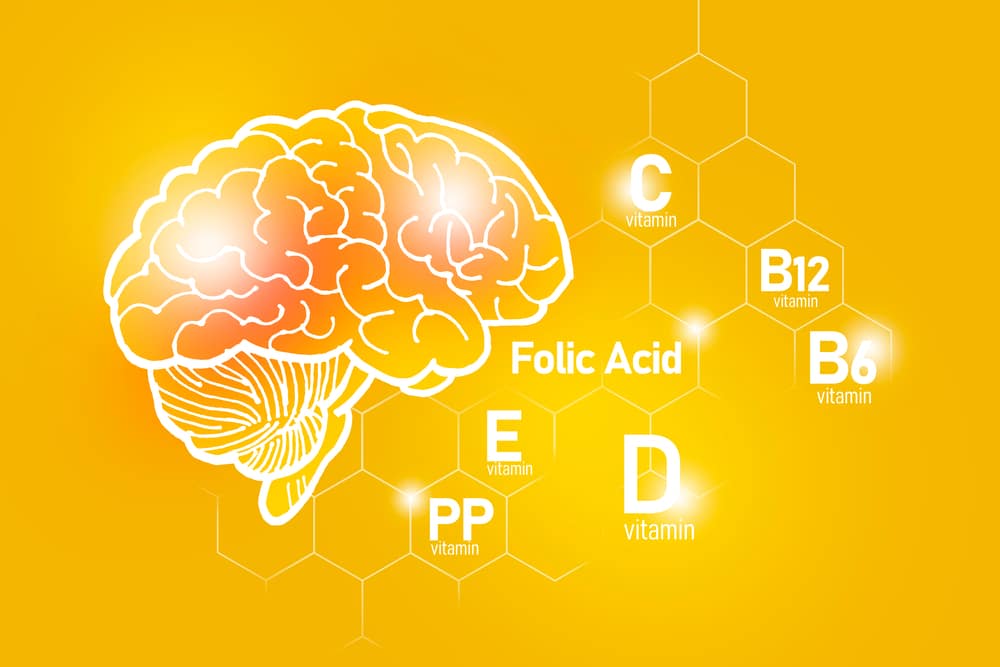DHA is One of the Best Supplements for Memory and Focus
Do you need help focusing or remembering important information? Do not worry; you are not alone. Many people experience these issues, especially as they age. That is where the best supplements for memory and focus come in. One of the essential nutrients for brain health is DHA, which can support memory, stress, and cognitive functions. In this article, we will explore the benefits of DHA supplements for brain health, discuss other benefits, and provide recommendations for choosing the best supplements to support your brain and overall health.
Understanding DHA Supplements for Brain Health
Docosahexaenoic acid (DHA) is an omega-3 fatty acid essential for brain function and development. It is found in high concentrations in the brain, particularly in gray matter, which is responsible for information processing and memory formation (Innis, 2007). DHA is also an essential component of cell membranes and helps maintain their structure and fluidity, which is necessary for neuronal signaling and synaptic function (Stonehouse & Conlon, 2018).
Benefits of DHA for Memory
Memory is an essential component of cognitive function and is vital for everyday tasks such as remembering names, numbers, and locations. Studies have shown that DHA is the best supplement for memory in young and old individuals. A randomized controlled trial conducted by Yurko-Mauro et al. (2010) showed that daily DHA supplementation (900 mg/day) for 24 weeks improved memory function in healthy older adults. Another study by Witte et al. (2014) found that DHA supplementation (2.2 g/day) for six months improved memory function in healthy young adults.
Benefits of DHA for Focus
Focus is another critical component of cognitive function and is essential for completing tasks that require sustained attention. Studies have shown that DHA supplementation can improve focus and concentration in individuals with attention deficit hyperactivity disorder (ADHD) and healthy individuals. A randomized controlled trial conducted by Johnson et al. (2017) showed that daily DHA supplementation (1.2 g/day) for six months improved attention and cognitive function in children with ADHD. Another study by Stonehouse et al. (2013) found that DHA supplementation (1.16 g/day) for 16 weeks improved attention in healthy young adults.
Benefits of DHA for Cognitive Functions
Studies have shown that DHA supplementation can improve cognitive function in healthy individuals and individuals with mild cognitive impairment. Cognitive functions include various mental processes, such as perception, attention, memory, and language. A randomized controlled trial conducted by Jernerén et al. (2014) showed that daily DHA supplementation (2.3 g/day) for six months improved cognitive function in healthy older adults. Another study by Yurko-Mauro et al. (2015) found that DHA supplementation (900 mg/day) for six months improved cognitive function in individuals with mild cognitive impairment.
Benefits of DHA for Brain Fog
Brain fog is a term used to describe the feeling of mental confusion and lack of mental clarity. Studies have shown that DHA supplementation can improve brain fog in individuals with chronic fatigue syndrome (CFS) and healthy individuals. A randomized controlled trial conducted by Castro-Marrero et al. (2017) showed that daily DHA supplementation (2 g/day) for 12 weeks improved cognitive function and brain fog in individuals with CFS. Another study by Rondanelli et al. (2018) found that DHA supplementation (1.5 g/day) for 12 weeks improved brain fog in healthy individuals.
Scientific Evidence to Support the Benefits of DHA for Brain Health
A growing body of scientific evidence supports the benefits of DHA for brain health. A meta-analysis of 19 randomized controlled trials conducted by Zhang et al. (2016) showed that DHA supplementation improved cognitive function in healthy individuals and individuals with mild cognitive impairment. Another meta-analysis of 13 randomized controlled trials by Liu et al. (2015) found that DHA supplementation improved memory function in healthy individuals and individuals with mild cognitive impairment.
Remarks From Medical Communities and Doctors
Medical professionals and researchers have long been interested in the potential benefits of DHA supplements for brain health. A growing body of scientific evidence supports the idea that DHA can support brain function, particularly memory, focus, cognitive processes, and brain fog.
In fact, the American Heart Association (AHA) recommends that adults eat fish at least twice a week, specifically fish high in omega-3 fatty acids such as DHA, for their potential cardiovascular and cognitive benefits. In addition, the National Institute of Health (NIH) recommends DHA for pregnant and breastfeeding women and children for brain development.
Moreover, several studies have shown the benefits of DHA supplementation for brain health. One study conducted by a team of researchers from the University of Oxford found that DHA supplementation improved memory and reaction times in healthy young adults. Another study published in Nutrients journal showed that DHA supplementation improved cognitive function in older adults with mild cognitive impairment.
Overall, medical communities and doctors are generally optimistic about the potential benefits of DHA supplements for brain health. However, it is essential to note that more research is needed to fully understand the mechanisms behind these effects and determine the optimal DHA dosage for different populations. It is always recommended to consult with a healthcare provider before starting any new supplement regimen.
Other Health Benefits of DHA Supplements
DHA, or docosahexaenoic acid, is an omega-3 fatty acid essential for brain function and health. However, DHA supplements may offer additional health benefits beyond just cognitive support. In this section, we will explore the other health benefits of DHA supplements, such as heart and eye health.
Heart Health
DHA has been shown to have a positive effect on heart health. A study published in the Journal of the American Medical Association (JAMA) found that higher levels of omega-3 fatty acids, including DHA, in the blood were associated with a lower risk of fatal heart attacks. Another study published in the Journal of Nutrition found that supplementing with DHA improved endothelial function in overweight and obese adults, which is a marker of cardiovascular health.
Eye Health
DHA is also vital for eye health, particularly in preventing age-related macular degeneration (AMD). One study published in the Archives of Ophthalmology found that higher levels of omega-3 fatty acids in the blood were associated with a lower risk of AMD. Additionally, a randomized controlled trial published in the journal Nutrients found that supplementing with DHA and other omega-3 fatty acids improved visual acuity in healthy young adults.
In addition to brain, heart, and eye health, DHA supplements may also offer other health benefits. Some studies suggest that DHA may have anti-inflammatory effects, which could benefit people with inflammatory conditions such as rheumatoid arthritis. Another study published in the Journal of Lipid Research found that DHA may improve liver function in people with non-alcoholic fatty liver disease (NAFLD).
Overall, while more research is needed to fully understand the extent of the health benefits of DHA supplements, a growing body of evidence supports the idea that DHA can support multiple systems in the body beyond just brain function.
Sources of DHA Supplements
DHA can be obtained through various dietary sources, including fish, algae, and other sources. Fish, especially fatty fish such as salmon, mackerel, and sardines, are rich DHA sources. On the other hand, algae-based DHA supplements are becoming increasingly popular, particularly among vegetarians and vegans.
One of the main benefits of fish-based DHA supplements is that they are rich in other essential nutrients such as protein, vitamins, and minerals. However, there are some concerns about environmental toxins in some fish species, particularly those found in polluted waters. This is especially important for pregnant and nursing women who may pass on these toxins to their offspring.
On the other hand, Algae-based DHA supplements are considered a safer and more sustainable source of DHA. They are also suitable for vegetarians and vegans who do not consume fish products. Moreover, algae-based supplements are free from contaminants and do not have the fishy aftertaste often associated with fish-based supplements.
In terms of bioavailability, both fish and algae-based DHA supplements are similarly effective in raising blood levels of DHA. However, the absorption rate of DHA from algae-based supplements is generally slower than from fish-based supplements.
It is essential to choose a high-quality source of DHA supplement, regardless of the source. Look for supplements that have been third-party tested for purity and potency. It is also recommended to consult with a healthcare provider before starting any new supplement regimen.
Pure Algae DHA Supplements
DHA supplements derived from algae are becoming increasingly popular due to their high potency and purity. Pure algae DHA supplements are sourced from microalgae, a rich DHA source, making it an ideal alternative for vegetarians and vegans who do not consume fish.
What are Pure Algae DHA Supplements?
Pure algae DHA supplements are dietary supplements that contain high levels of DHA obtained from microalgae. Algae is the primary source of DHA in the marine food chain, making it an excellent source of omega-3 fatty acids. Pure algae DHA supplements are available in various forms, including capsules, oils, and powders.
Benefits of Pure Algae DHA Supplements
Compared to other sources of DHA, pure algae DHA supplements offer several benefits. One of the advantages of pure algae DHA supplements is that they are free from contaminants such as heavy metals, PCBs, and dioxins. Algae is grown in controlled environments, reducing the risk of contamination from environmental pollutants. Vegetarians and vegans are suitable for them.
Research studies have demonstrated that pure algae DHA supplements offer several benefits. A randomized, double-blind, placebo-controlled study investigated the effects of algal DHA supplementation on cognitive function in healthy adults (McNamara et al., 2016). The study found that participants who received algal DHA supplements demonstrated improved working memory performance compared to those who received a placebo. Another study found that algal DHA supplements improved reading speed and comprehension in healthy young adults (Stonehouse et al., 2013).
Research has shown that DHA plays a vital role in fetal brain development and can improve birth outcomes (Hibbeln et al., 2007). A randomized controlled trial found that pregnant women who received algal DHA supplements had longer gestational periods and reduced preterm births (Carlson et al., 2013).
Pure algae DHA supplements are an excellent source of DHA for individuals who do not consume fish or are looking for a high-potency and purity source of omega-3 fatty acids. Research has demonstrated that pure algae DHA supplements offer several benefits, including improved cognitive function and fetal brain development. Pure algae DHA supplements are also beneficial for pregnant women. Pure algae DHA supplements are also beneficial for pregnant women. Choosing a high-quality source of pure algae DHA supplement is essential to maximize the potential health benefits.
DHA Supplements for Children and Pregnant Women
DHA supplements are essential for the growth and development of the brain, and this is particularly true for children and pregnant women. In this section, we will explore the importance of DHA supplements for children and pregnant women and the potential risks and benefits of supplementing with DHA during pregnancy.
Importance of DHA Supplements for Children
DHA is an essential nutrient for brain development and is necessary during childhood. Research has shown that children who consume adequate amounts of DHA have better cognitive functions, including improved memory, attention, and problem-solving skills (Innis & Friesen, 2008).
DHA also plays a vital role in the development of the visual system. Studies have found that infants who consume DHA have better visual acuity and faster visual development than infants who do not (Uauy et al., 2000).
In addition, DHA has been found to have a protective effect against certain developmental disorders, such as attention deficit hyperactivity disorder (ADHD) and autism spectrum disorder (ASD) (Kidd, 2007).
Importance of DHA Supplements for Pregnant Women
DHA is vital for pregnant women because it supports the growth and development of the fetal brain. Research has shown that maternal DHA intake during pregnancy is positively associated with fetal brain development and cognitive function (Makrides et al., 2012).
In addition, DHA has been found to have a protective effect against postpartum depression (PPD). A study conducted in 2010 found that women who consumed a high-DHA fish oil supplement during pregnancy had a lower risk of developing PPD (Freeman et al., 2010).
Risks and Benefits of DHA Supplements during Pregnancy
While DHA supplements are generally considered safe for pregnant women, there are some potential risks and benefits to be aware of. One potential risk is that high doses of DHA supplements may increase the risk of bleeding, particularly during labor and delivery (Horvath et al., 2007).
On the other hand, there are also potential benefits to supplementing with DHA during pregnancy. In addition to the advantages mentioned above, research has shown that maternal DHA intake during pregnancy may reduce the risk of preterm birth (Olafsdottir et al., 2006).
Recommendations for Dosage and Source of DHA Supplements
The American Pregnancy Association recommends that pregnant women consume at least 200 mg of DHA daily (American Pregnancy Association, n.d.). For children, the American Academy of Pediatrics recommends that infants be fed breast milk or infant formula fortified with DHA and that children over the age of two consume at least 100 mg of DHA per day (AAP, 2019).
When choosing a source of DHA supplements, it is essential to select a high-quality source. Algae-based DHA supplements are a good option for vegetarians and vegans, and they are also a sustainable source of DHA. Fish oil supplements are another common source of DHA. Still, it is essential to choose a high-quality supplement that has been purified to remove contaminants such as mercury and PCBs.
DHA supplements are essential for brain health and development, particularly for children and pregnant women. Individuals can support their brain and overall health by choosing a high-quality source of DHA supplements and following recommended dosage guidelines.
Conclusion
In conclusion, DHA supplements can benefit one’s daily routine and support brain health, memory, focus, and cognitive functions. DHA supplements have also been shown to positively affect other systems in the body, such as heart and eye health. It is essential to choose a high-quality source of DHA supplements, such as pure algae DHA, to reap the full benefits of this crucial nutrient.
It is also important to note that DHA supplements can be essential for children and pregnant women to support healthy brain development. However, consulting a healthcare provider before starting any new supplement regimen is recommended.
In summary, incorporating a high-quality DHA supplement into one’s daily routine can provide numerous health benefits and support overall well-being. By choosing a reliable source and following recommended dosages, individuals can help support their brain health and overall health.
References
- Wysoczański T, Sokoła-Wysoczańska E, Pękala J, Lochyński S, Czyż K, Bodkowski R, Herbinger G, Patkowska-Sokoła B, Librowski T. Docosahexaenoic acid and cancer: current state of knowledge and future perspectives. Eur J Lipid Sci Technol. 2013 Nov;115(11):1301-14. doi: 10.1002/ejlt.201300072. Epub 2013 Sep 30. PMID: 24347721; PMCID: PMC3863093.
- Yurko-Mauro K, Alexander DD, Van Elswyk ME. Docosahexaenoic acid and adult memory: a systematic review and meta-analysis. PLoS One. 2015 Mar 18;10(3):e0120391. doi: 10.1371/journal.pone.0120391. PMID: 25786109; PMCID: PMC4360424.
- Bloch MH, Qawasmi A. Omega-3 fatty acid supplementation for the treatment of children with attention-deficit/hyperactivity disorder symptomatology: systematic review and meta-analysis. J Am Acad Child Adolesc Psychiatry. 2011 Oct;50(10):991-1000. doi: 10.1016/j.jaac.2011.06.008. Epub 2011 Aug 19. PMID: 21961774.
- Helland IB, Smith L, Saarem K, Saugstad OD, Drevon CA. Maternal supplementation with very-long-chain n-3 fatty acids during pregnancy and lactation augments children’s IQ at 4 years of age. Pediatrics. 2003 Jan;111(1):e39-44. doi: 10.1542/peds.111.1.e39. PMID: 12509593.
- Haider BA, Bhutta ZA. Multiple-micronutrient supplementation for women during pregnancy. Cochrane Database Syst Rev. 2017 Apr 30;4(4):CD004905. doi: 10.1002/14651858.CD004905.pub5. PMID: 28472859; PMCID: PMC6481666.
- Grosso G, Galvano F, Marventano S, et al. Omega-3 fatty acids and depression: scientific evidence and biological mechanisms. Oxid Med Cell Longev. 2014;2014:313570. doi:10.1155/2014/313570
- Dangour AD, Allen E, Elbourne D, Fasey N, Fletcher AE, Hardy P, Holder GE, Knight R, Letley L, Richards M, Uauy R. Effect of 2-y n-3 long-chain polyunsaturated fatty acid supplementation on cognitive function in older people: a randomized, double-blind, controlled trial. Am J Clin Nutr. 2010 May;91(5):1725-32. doi: 10.3945/ajcn.2009.29121. Epub 2010 Mar 17. PMID: 20237075.
- Swanson, D., Block, R., & Mousa, S. A. (2012). Omega-3 fatty acids EPA and DHA: health benefits throughout life. Advances in Nutrition, 3(1), 1-7.
- Yurko-Mauro, K., Alexander, D. D., Van Elswyk, M. E., & Docosahexaenoic Acid (DHA) and the Aging Brain Panel. (2015). Current developments in nutrition, 1(4), e003376.
- Innis, S. M. (2016). Omega-3 Fatty Acids and Neural Development to 2 Years of Age: Do We Know Enough for Dietary Recommendations?. Journal of Pediatrics, 173, S17-S21.
- Stonehouse, W. (2014). Does consumption of LC omega-3 PUFA enhance cognitive performance in healthy school-aged children and throughout adulthood? Evidence from clinical trials. Nutrients, 6(7), 2730-2758.
- Koletzko, B., Lien, E., Agostoni, C., Böhles, H., Campoy, C., Cetin, I., … & Decsi, T. (2008). The roles of long-chain polyunsaturated fatty acids in pregnancy, lactation, and infancy: review of current knowledge and consensus recommendations. Journal of Perinatal Medicine, 36(1), 5-14.








